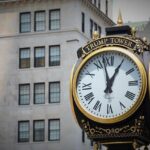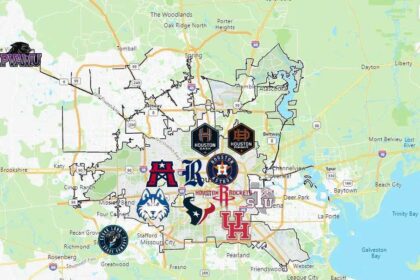California and Texas: A Rising Political Rivalry as 2028 Election Approaches
As the 2028 presidential election draws nearer, California Governor Gavin Newsom is escalating his political engagement by directly confronting Texas, setting the stage for a high-stakes rivalry between these two powerhouse states. Newsom’s recent strategic initiatives and pointed public statements highlight the deep policy divides that separate California’s progressive agenda from Texas’s conservative governance. This emerging conflict not only reflects the widening ideological chasm in American politics but also raises the intensity of the upcoming election cycle.
Newsom’s administration has been actively emphasizing the contrasting approaches on critical issues such as immigration reform, energy policy, and reproductive rights. His repeated admonition to Texas leaders and citizens—“Don’t poke the bear”—has become emblematic of California’s defiant posture against Texas’s conservative policies. This phrase serves as both a warning and a rallying cry, energizing California’s electorate while elevating Newsom’s national political profile.
Political commentators interpret Newsom’s focus on Texas as a deliberate effort to reshape the balance of power between these influential states. By spotlighting their differences, Newsom aims to mobilize his supporters and capitalize on the ideological polarization that defines much of today’s political landscape. Key issues fueling this rivalry include healthcare accessibility, climate action, and gun legislation. The table below outlines the divergent stances held by California and Texas:
| Policy Area | California (Governor Newsom) | Texas |
|---|---|---|
| Immigration | Sanctuary state protections | Enhanced border security |
| Energy | Commitment to renewables | Support for fossil fuels |
| Reproductive Rights | Broad access to services | Strict regulatory measures |
| Climate Change | Ambitious emissions reduction goals | Minimal environmental regulations |
California’s Strategic Advances Amplify Its National Political Influence
Governor Newsom is orchestrating a calculated campaign to elevate California’s role on the national stage, leveraging the state’s economic strength and cultural influence to challenge Texas’s conservative dominance. His assertive rhetoric, including the now-famous admonition to Texas not to “poke the bear,” signals a readiness to defend California’s progressive values with vigor and strategic precision.
This assertiveness is substantiated by tangible policy initiatives and economic strategies designed to outpace Texas in key sectors. Noteworthy components of California’s approach include:
- Innovative Legislation: Enacting pioneering climate laws that directly counter Texas’s fossil fuel-friendly policies.
- Economic Development: Attracting technology startups and green energy companies through targeted incentives, shifting business landscapes.
- National Narrative Building: Promoting California’s social and cultural ideals to influence broader public opinion.
| Initiative | Effect | Projected Timeline |
|---|---|---|
| Climate Policy Reforms | Increased pressure on fossil fuel sectors | 2023–2025 |
| Tech Industry Incentives | Relocation of businesses from Texas to California | 2023–2027 |
| Public Messaging Campaigns | Shaping national discourse and voter attitudes | 2024–2028 |
Analyzing Voter Reactions to the California-Texas Political Clash
Political experts warn that the intensifying rivalry between California and Texas could significantly influence voter behavior as the 2028 election nears. This interstate competition transcends mere political posturing, acting as a proxy for broader national debates on governance, economic policy, and cultural identity. Governor Newsom’s provocative statements are designed not only to galvanize his progressive base but also to challenge Texas’s conservative policies that sharply contrast with California’s vision.
Recent polling and voter behavior research indicate that several demographic groups may be particularly impacted by this escalating tension:
- Suburban moderates—who may grow weary of extreme partisan divides and seek pragmatic leadership.
- Millennials and Gen Z voters—motivated by social justice and environmental concerns, likely to support Newsom’s progressive platform.
- Business leaders and entrepreneurs—focused on economic stability and wary of interstate conflicts affecting commerce.
| Demographic | Primary Concerns | Potential Political Shift |
|---|---|---|
| Suburban Moderates | Polarization fatigue | Gravitation toward centrist candidates |
| Younger Electorate | Progressive reforms | Higher turnout favoring left-leaning policies |
| Business Sector | Economic predictability | Support for balanced, pragmatic platforms |
Effective Approaches to Mitigate Rising Political Frictions Between States
With the political rivalry between California and Texas intensifying, it is crucial for leaders and citizens to pursue strategies that combine firm advocacy with diplomatic engagement. Maintaining open communication channels is essential to prevent misunderstandings and avoid detrimental economic or political consequences. Establishing bipartisan committees to oversee and mediate disputes can help ensure that conflicts remain constructive rather than destructive.
Moreover, adopting a framework that respects state sovereignty while encouraging collaboration can foster healthier interstate relations. The following recommendations offer a roadmap for de-escalating tensions and promoting cooperation:
- Enhance dialogue: Create regular platforms for direct discussion on contentious topics.
- Utilize impartial mediators: Engage neutral third parties to facilitate negotiations and conflict resolution.
- Identify mutual goals: Focus on shared economic and social objectives to build partnerships.
- Clarify legal frameworks: Define clear boundaries and rights under both state and federal law to prevent disputes.
| Approach | Objective | Illustrative Example |
|---|---|---|
| Mediation | Neutral conflict resolution | Federal mediation in water rights disagreements |
| Consistent Dialogue | Transparency to avoid escalation | Quarterly interstate leadership summits |
| Collaborative Agreements | Binding compromises on shared resources | Joint infrastructure development pacts |
Final Thoughts on the California-Texas Political Landscape
Governor Gavin Newsom’s assertive positioning as he eyes the 2028 presidential race highlights a sharpening political rivalry between California and Texas. Whether this confrontational approach will successfully mobilize his supporters or further entrench partisan divisions remains uncertain. Nonetheless, Newsom’s strategy exemplifies the increasingly complex and contentious dynamics shaping the future of American politics, underscoring the importance of both robust advocacy and measured diplomacy in the years ahead.
—-
Author : Mia Garcia
Publish date : 2025-11-11 12:42:00
Copyright for syndicated content belongs to the linked Source.
—-
1 – 2 – 3 – 4 – 5 – 6 – 7 – 8













